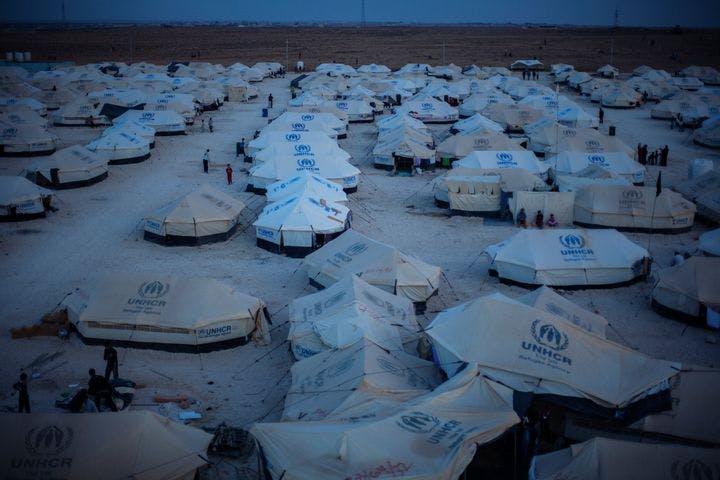Spring 2008
Iraq's Forgotten Refugees
– The Wilson Quarterly
The near total neglect of the two million refugees that have fled Iraq since the American intervention in 2003 may have a silver lining: at least they haven't wound up trapped in a UN refugee camp for years - or generations.
The near-total neglect of the two million refugees—about seven percent of the Iraqi population—who have fled since the American intervention in 2003 has had one perversely positive outcome, write Ben Sanders and Merrill Smith, editors of World Refugee Survey. The world’s negligence has spared the Iraqis from being herded into United Nations–organized refugee camps, there to be trapped for years—or generations.
The tide of refugees from Iraq is far greater than that from the Vietnam War, but the American response has been weak. Between 1975 and 1980, the United States resettled 322,000 of the global total of 583,000 Indochina refugees. It paid for more than half of the budget of the United Nations High Commission for Refugees (UNHCR). But Washington has accepted only about 2,000 Iraqi refugees for resettlement. It contributed about a third of the UN refugee budget in 2007.
America has been permitted such a response because this refugee crisis has been invisible—no overcrowded ships wallowing toward the Philippines, no desperate boat people being robbed by pirates. Instead, Iraqis have fled in cars and taxis, renting apartments in the slums of Damascus, Amman, Cairo, and Beirut. An estimated 40 percent of Iraqi professionals have left, trying to live on savings and jobs in the underground economy. In many families, the authors say, “children are now the main breadwinners since parents have less fear of authorities catching them without papers.” (Since Sanders and Smith wrote their article, thousands of refugees have returned to Iraq, though UNHCR says the flow subsided in December.)
The world has about 14 million refugees—Eritreans who fled to Sudan since 1968, Burmese in Thailand since 1986, Palestinians living in camps since 1948. The camps are often wretched places, scenes of abuse of women and children, illness, and poverty. The militias and guerilla groups that control many of the camps use the international aid that keeps the refugees alive to prolong armed struggles. Once established, refugee camps are hard to close. Host governments and others want to keep aid flowing.
The United States can save the Iraqis from this fate, the authors say. It can join with other donors to reimburse host countries for the costs of education, health care, and other social services for the refugees—while insisting that the host nations allow them to work legally. The State Department recently gave $30 million toward the schooling of Iraqi refugee children in addition to the $150 million already available for Iraqis forced from their homes. But such a sum is likely only a down payment. Jordan and Syria alone claim that hosting Iraqi refugees costs each of them $1 billion a year.
* * *
The Source: "The Iraqi Refugee Disaster" by Ben Sanders and Merrill Smith, in World Policy Journal, Fall 2007.
Photo courtesy of UK Department for International Development
